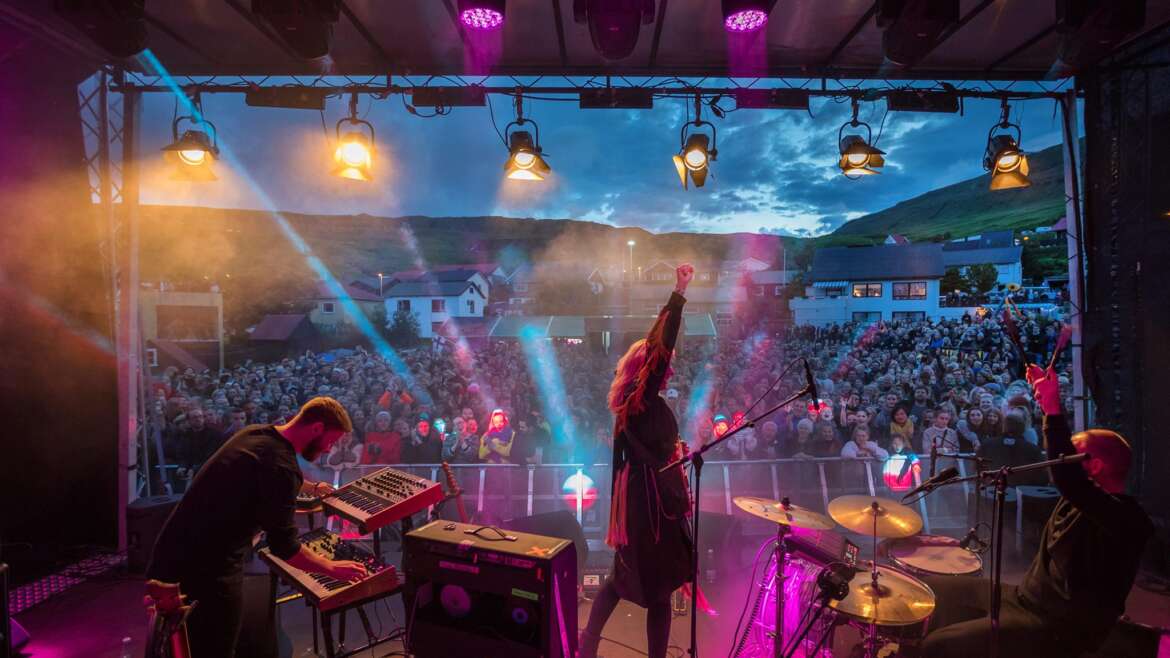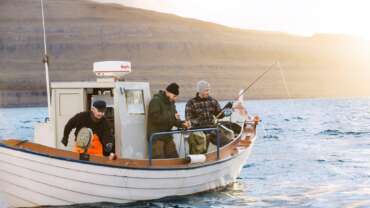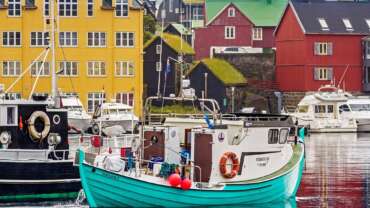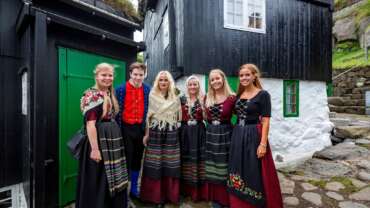The Faroe Islands Music
Music plays an integral role in Faroese culture and society – perhaps more so than in most other communities – because it is so deeply rooted in the islands’ centuries-long tradition of storytelling.
No musical instrument of significance was available on the islands until the mid-1800s. Instead, people used their voices to sing ballads. Despite the introduction of instruments and various music forms since, the Faroese have stuck firmly to their singing traditions, including the Faroese chain dance (called Føroyskur dansur).
Originally a 13th century mediaeval ring dance from Southern Europe, the Faroese chain dance has survived despite the gradual demise of the dance elsewhere in Europe (which probably happened because of a ban from the church, who viewed the dance as a heathen tradition). The Faroese chain dance, with its quirky rhythm and ballads about kings and heroes of days gone by, uses no musical instruments. The dancers form a circle, holding each other’s hand while expressively singing or chanting (called kvøðing). A skipper, or captain, leads the dance and starts each verse.
The ballads have been orally transmitted since the 13th century. For centuries, these ballads were not only sung while dancing, but also used in normal everyday life; for instance, during the evenings when families would gather to knit or work with wool. The ballads were written down for the first time at the beginning of the 19th century. Today there are 15 Faroese Dance Associations and one in Denmark.
This rich tradition of singing and dancing without instruments has often been deemed the reason why the Faroe Islands have continuously produced a relatively high number of musicians in comparison to the country’s small population.
FAROESE MUSIC IN THE 21ST CENTURY
Although non-instrumental musical traditions, such as the Faroese chain dance, still thrive today, there is no denying that Faroese music has embraced the addition of instruments and the influence of foreign music. The Faroese music scene has never buzzed more loudly, with artists and creators across all genres consistently delivering world-class performances and recordings.
The country’s most renowned artists are indisputably Teitur and Eivør, whose respective international careers span over more than a decade. Other artists who have enjoyed international acclaim are Viking Metal band Týr, pop group Byrta, singer-songwriter Lena Anderssen, avant-garde Orka and alternative-pop singer Greta Svabo Bech – and despite its size, the Faroe Islands even has its own symphony orchestra!
MUSIC FESTIVALS
The numerous music festivals held annually in the Faroe Islands give proof to the fact that the music scene is thriving. The interesting thing is that here the types of festivals vary greatly – from Faroese Folk music to Pop, Doom Metal to Country, there is something for everyone.








